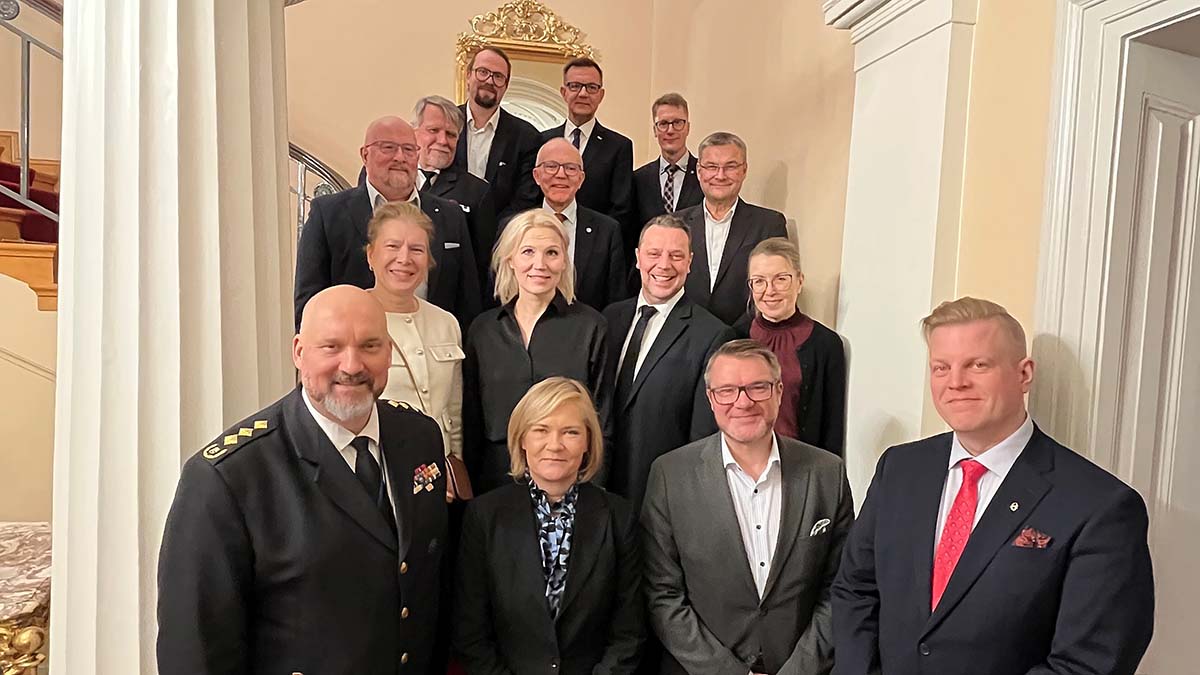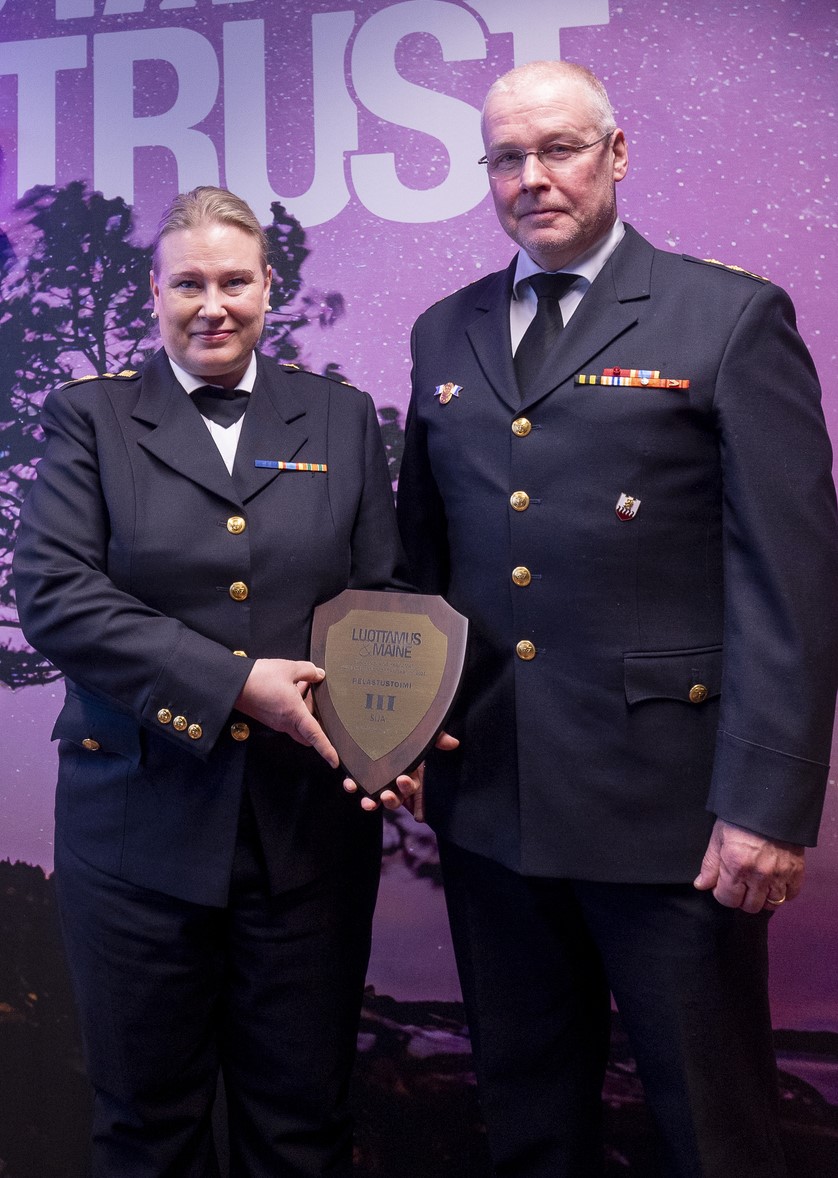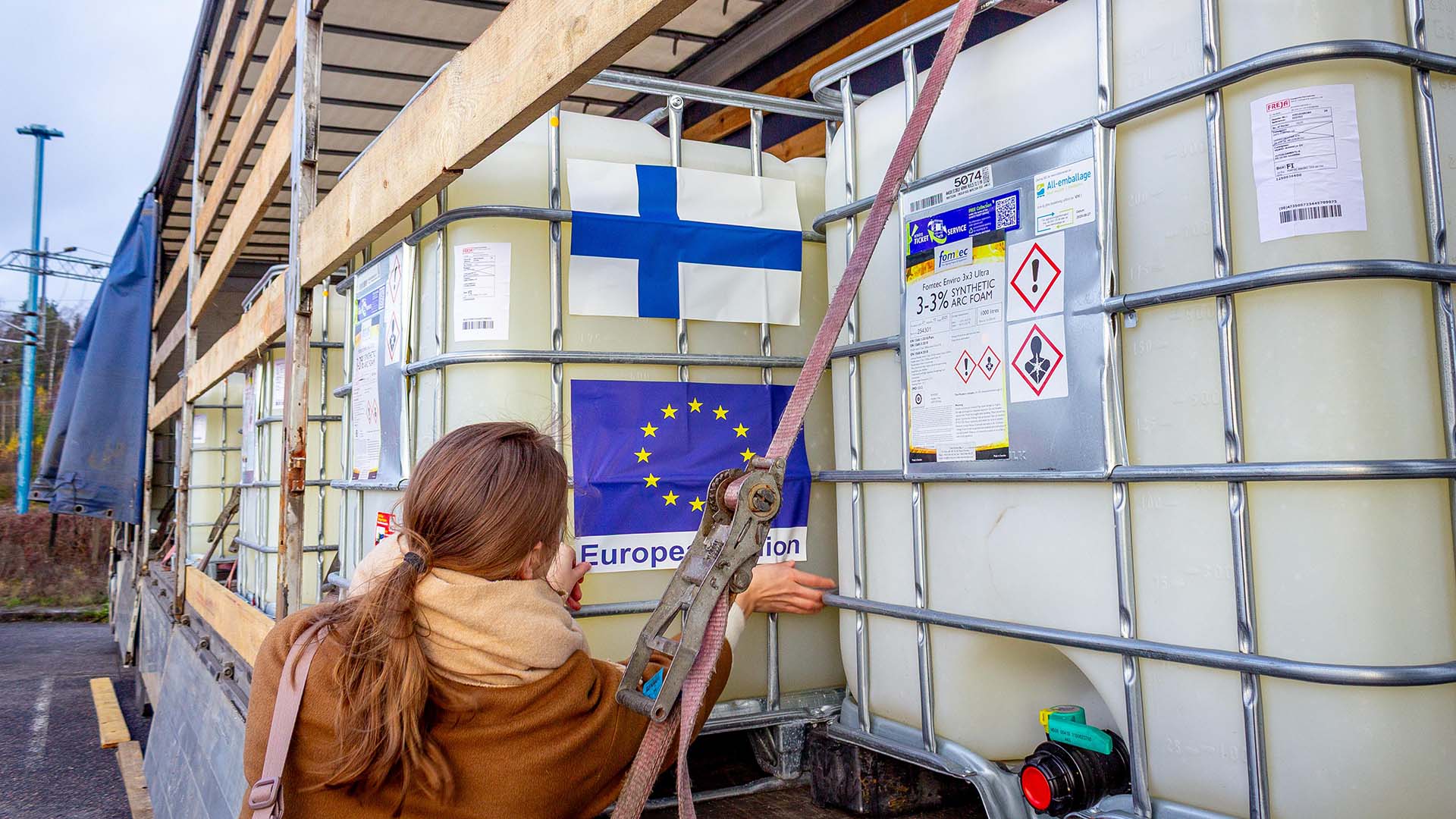
Ebola epidemic shows: cooperation needed to strengthen health security
The West African Ebola epidemic has shown that functioning health systems are important for security and for the function of society. The spread of the epidemic in the area would mean a deepening of human suffering in the area, while also making it considerably more difficult to stop the spread.
The Global Health Security Agenda has brought together more than 40 countries and key international organisations to collaborate. Its purpose is to improve international preparedness and the ability of health systems to function. The programme supports the implementation of the health regulations of the World Health Organisation (WHO) and the veterinary standards of the World Organisation for Veterinary Health (OIE) in the member states. The chairmanship of the programme passes to Finland in 2015.
An international group of experts noted already when it investigated the actions against the 2011 pandemic that the world is ill prepared to respond to a serious emergency threatening public health that would be global and of long duration.
Not all countries have the ability to recognise epidemics in their early stages, nor the means to prevent communicable diseases from spreading. They also do not have an effective health system for dealing with epidemics. Without effective countermeasures local epidemics can become a threat to global security. The possibility that the causes of a disease might end up in the wrong hands increases the security threat.
In many fragile countries state funds have been directed at other things than health care or education. International players would now seem to be ready to strengthen the health sector. The starting point is a commitment by the countries themselves to sustainable solutions. Development of health care alone is not sufficient, however, if the societies are weak in other respects.
Countries benefit when they learn from the experiences of others and work together. For instance Finland is working with Tanzania to facilitate the quick identification of the country's animal diseases and microbes. Local experts and officials are trained in the project in preparation for biological threats.
Health security cannot be built exclusively on the efforts of the health sector. Important in this work are also agricultural, defence, development, security, and foreign affairs administrations. Finland's strength is the smooth and close cooperation among officials. Good examples include the Centre for Biothreat Preparedness and the biosecurity network, and the Zoonosis Centre, which monitors infectious diseases which spread from animals to humans. Finland can also send rescue personnel to support the activities of health officials in crisis areas, for instance in coordination work or for technical activities. In such a case help is provided through the EU's rescue service mechanism or through international organisations.
Fighting diseases is the shared mission. Each antibiotic treatment increases the amount of antibiotic residues circulating in nature. This, in turn, increases the number of resistant bacteria. The use of antibiotics can be reduced through good animal husbandry, for instance. There are relatively few resistant bacteria in the Finnish food chain. The good state of affairs has been achieved through tight policy on antibiotics, treatment recommendations, monitoring, collaboration among officials, and research. Different sectors have also committed to the common goals.
The infection of nurses in Western hospitals with Ebola indicated how important it is to pay heed to health security considerations. Advanced technology does not protect those working with infectious diseases if mistakes are made, if equipment is outdated, or if instructions are inadequate. Continuing training and practice create sustainable security culture. From the point of view of biosecurity it is important that those working with infectious diseases are protected against infection.
Effective preparation, protective measures, and collaboration among officials are needed to prevent the cause of the disease from being spread deliberately. Preparations and countermeasures against natural, inadvertent, or deliberate biological threats can well be planned in the same way. What is most important, however, is to develop biosecurity practices and to increase awareness of the threats.
The international community is seeking sustainable solutions for long-term challenges. The Health Security Agenda has this specific aim. The chairmanship will give Finland a unique possibility to influence and to advance the implementation of shared health recommendations and standards. At the same time we can increase the effectiveness of the activities of the international community in improving global health security.
Further information
Päivi Sillanaukee
Permanent secretary
Ministry of Social Affairs and Health
tel. 02951 63356
Jaana Husu-Kallio
Permanent secretary
Ministry of Agriculture and Forestry
tel. 02951 62184
Arto Räty
Permanent secretary
Ministry of Defence
tel. (09) 160 88101
Peter Stenlund
Secretary of State
Ministry for Foreign Affairs
tel. 02953 50618
Päivi Nerg
Permanent secretary
Ministry of the Interior
tel. 02954 18803
Det senaste
 Pressmeddelande
Pressmeddelande
 Pressmeddelande
Pressmeddelande
 Pressmeddelande
Pressmeddelande
 Pressmeddelande
Pressmeddelande
 Pressmeddelande
Pressmeddelande


